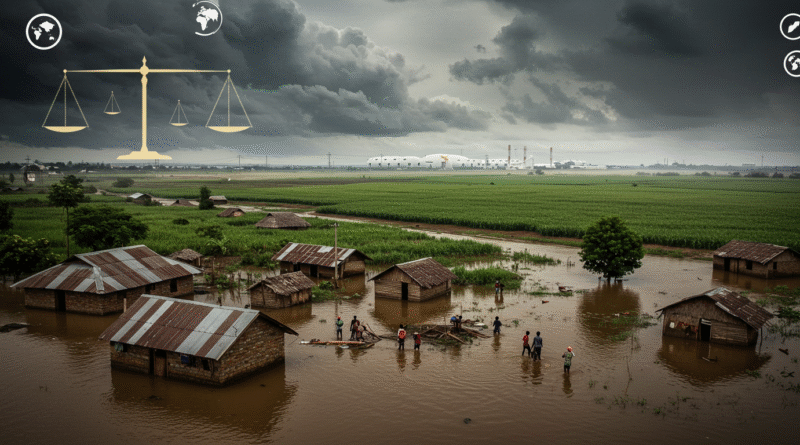Malawi Flood Lawsuit Shakes Real Estate
The Malawi flood real estate lawsuit is sending shockwaves through climate and corporate accountability circles.
In an ‘underdog rising’ move, villagers from Chikwawa District are suing Illovo Sugar, a subsidiary of Associated British Foods, for allegedly worsening flood impacts during Cyclone Ana in 2022.
The claim?
That corporate-built embankments diverted and intensified floodwaters, resulting in loss of life, destruction of homes, and displacement.
This case could set a global precedent on the role of real estate and infrastructure in protecting—or endangering—vulnerable communities.
Corporate Role in the Flood Crisis
At the heart of the Malawi flood case is the balance between industrial development and local safety. Illovo Sugar’s embankments, meant to protect sugar plantations, are being accused of rerouting floodwaters toward neighboring communities. However, the plaintiffs, supported by legal advocacy groups, argue this design prioritized corporate assets over human lives.
This exposes a troubling reality: real estate and infrastructure. If not designed with climate resilience in mind, can amplify rather than mitigate disaster risks.
Why Malawi Flood Real Estate Lawsuit Matters
This lawsuit is not just about compensation—it’s about accountability and foresight. In a region regularly hit by climate-induced weather events, infrastructure must be designed with holistic, community-centered planning. Real estate developers and corporations can no longer afford to ignore the social and environmental consequences of their projects.
This case could catalyze legal frameworks that demand climate risk assessments and ethical design in real estate development, especially in climate-vulnerable zones.
Future of Real Estate in a Warming Malawi
The outcome of the Malawi flood case could redefine how infrastructure is planned across sub-Saharan Africa. As governments and developers look to expand housing and other real estate zones, this lawsuit underscores the urgent need for climate-resilient design standards prioritizing sustainability and human safety.
The verdict could influence environmental policy and inspire better building codes. Also, it could encourage investment in nature-based solutions like wetlands restoration and floodplain protection.
Summarily, the Malawi lawsuit is more than a legal battle—it’s a call to action. As climate change accelerates, real estate must evolve from a profit-driven venture into a pillar of community resilience and ethical development.

